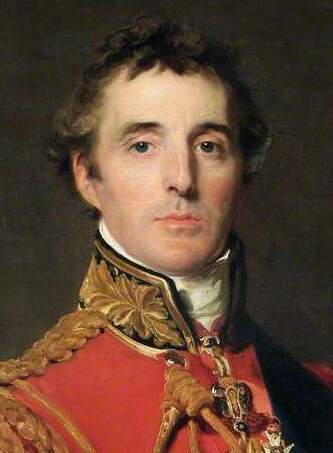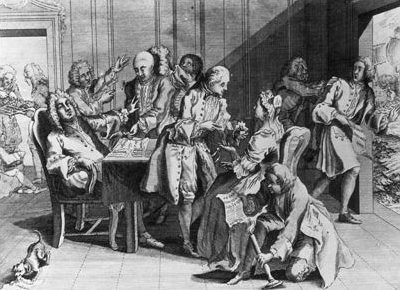|
Clotworthy Skeffington, 4th Viscount Massereene
Clotworthy Skeffington, 4th Viscount Massereene (died 11 February 1738) was an Anglo-Irish politician and peer. Biography He was the son of Clotworthy Skeffington, 3rd Viscount Massereene and Rachel Hungerford. He served in the Irish House of Commons as the Member of Parliament for County Antrim (Parliament of Ireland constituency), County Antrim between 1703 and 1714. In March 1714 he succeeded to his father's title and assumed his seat in the Irish House of Lords. On 9 September 1713 he married Lady Catherine Chichester, daughter of Arthur Chichester, 3rd Earl of Donegall. Together they had seven children. He was succeeded in his title by his eldest son, Clotworthy Skeffington, 1st Earl of Massereene, Clotworthy Skeffington, who was made Earl of Massereene in 1756.John Lodge, Mervyn Archdal''The Peerage Of Ireland'' Volume 2 (Moore, 1789), p.388. References Year of birth unknown 1738 deaths 18th-century Anglo-Irish people Irish MPs 1703–1713, Skeffington, Cl ... [...More Info...] [...Related Items...] OR: [Wikipedia] [Google] [Baidu] |
Anglo-Irish
Anglo-Irish people () denotes an ethnic, social and religious grouping who are mostly the descendants and successors of the English Protestant Ascendancy in Ireland. They mostly belong to the Anglican Church of Ireland, which was the State religion, established church of Ireland until 1871, or to a lesser extent one of the English Dissenters, English Dissenting churches, such as the Methodism, Methodist Church, though some were Catholic Church, Catholics. They often defined themselves as simply "British", and less frequently "Anglo-Irish", "Irish" or "English". Many became eminent as administrators in the British Empire and as senior Irish military diaspora#Britain, army and naval officers since the Kingdom of England and Kingdom of Great Britain, Great Britain were in a real union with the Kingdom of Ireland for over a century, before politically uniting into the United Kingdom of Great Britain and Ireland in 1801. The term is not usually applied to Presbyterianism, Presbyteri ... [...More Info...] [...Related Items...] OR: [Wikipedia] [Google] [Baidu] |
Clotworthy Upton (MP) (1768–1822)
{{hndis, Upton, Clotworthy ...
Clotworthy Upton may refer to: * Clotworthy Upton (1665−1725), Member of Parliament of Ireland for, successively, Newtownards and Antrim County constituencies; uncle of the 1st Baron Templetown * Clotworthy Upton, 1st Baron Templetown (1721–1785) * Clotworthy Upton (Royal Navy officer) Clotworthy Upton (1768–1822) was an officer in the Royal Navy who served during the French Revolutionary War, French Revolutionary and Napoleonic Wars. He was the illegitimate son of Clotworthy Upton, 1st Baron Templetown. Upton joined the se ... [...More Info...] [...Related Items...] OR: [Wikipedia] [Google] [Baidu] |
Members Of The Irish House Of Lords
Member may refer to: * Military jury, referred to as "Members" in military jargon * Element (mathematics), an object that belongs to a mathematical set * In object-oriented programming, a member of a class ** Field (computer science), entries in a database ** Member variable, a variable that is associated with a specific object * Limb (anatomy), an appendage of the human or animal body ** Euphemism for penis * Structural component of a truss, connected by nodes * User (computing), a person making use of a computing service, especially on the Internet * Member (geology), a component of a geological formation * Member of parliament * The Members, a British punk rock band * Meronymy, a semantic relationship in linguistics * Church membership, belonging to a local Christian congregation, a Christian denomination and the universal Church * Member, a participant in a club or learned society A learned society ( ; also scholarly, intellectual, or academic society) is an organizatio ... [...More Info...] [...Related Items...] OR: [Wikipedia] [Google] [Baidu] |
Irish MPs 1713–1714
Irish commonly refers to: * Someone or something of, from, or related to: ** Ireland, an island situated off the north-western coast of continental Europe ***Éire, Irish language name for the island and the sovereign state *** Erse (other), Scots language name for the Irish language or Irish people ** Republic of Ireland, a sovereign state ** Northern Ireland, a constituent unit of the United Kingdom of Great Britain and Northern Ireland * Irish language, a Celtic Goidelic language of the Indo-European language family spoken in Ireland * Irish English, set of dialects of the English language native to Ireland * Irish people, people of Irish ethnicity Irish may also refer to: Places * Irish Creek (Kansas), a stream in Kansas * Irish Creek (South Dakota), a stream in South Dakota * Irish Lake, Watonwan County, Minnesota * Irish Sea, the body of water which separates the islands of Ireland and Great Britain People * Irish (surname), a list of people * William Irish, pse ... [...More Info...] [...Related Items...] OR: [Wikipedia] [Google] [Baidu] |
18th-century Anglo-Irish People
The 18th century lasted from 1 January 1701 (represented by the Roman numerals MDCCI) to 31 December 1800 (MDCCC). During the 18th century, elements of Enlightenment thinking culminated in the Atlantic Revolutions. Revolutions began to challenge the legitimacy of monarchical and aristocratic power structures. The Industrial Revolution began mid-century, leading to radical changes in human society and the environment. The European colonization of the Americas and other parts of the world intensified and associated mass migrations of people grew in size as part of the Age of Sail. During the century, slave trading expanded across the shores of the Atlantic Ocean, while declining in Russia and China. Western historians have occasionally defined the 18th century otherwise for the purposes of their work. For example, the "short" 18th century may be defined as 1715–1789, denoting the period of time between the death of Louis XIV of France and the start of the French Revol ... [...More Info...] [...Related Items...] OR: [Wikipedia] [Google] [Baidu] |
1738 Deaths
Events January–March * January 1 – At least 664 African slaves drown when the Dutch West Indies Company slave ship ''Leusden'' capsizes and sinks in the Maroni River during its arrival in Surinam. The Dutch crew escapes, and leaves the slaves locked below decks to die. * January 3 – George Frideric Handel's opera '' Faramondo'' is given its first performance. * January 7 – After the Maratha Empire of India wins the Battle of Bhopal over the Jaipur State, Jaipur cedes the Malwa territory to the Maratha in a treaty signed at Doraha. * February 4 – Court Jew Joseph Süß Oppenheimer is executed in Württemberg. * February 11 – Jacques de Vaucanson stages the first demonstration of an early automaton, '' The Flute Player'' at the Hotel de Longueville in Paris, and continues to display it until March 30. * February 20 – The Swedish Levant Company is founded. * March 28 – Mariner Robert Jenkins presents a pickle ... [...More Info...] [...Related Items...] OR: [Wikipedia] [Google] [Baidu] |
Year Of Birth Unknown
A year is a unit of time based on how long it takes the Earth to orbit the Sun. In scientific use, the tropical year (approximately 365 solar days, 5 hours, 48 minutes, 45 seconds) and the sidereal year (about 20 minutes longer) are more exact. The modern calendar year, as reckoned according to the Gregorian calendar, approximates the tropical year by using a system of leap years. The term 'year' is also used to indicate other periods of roughly similar duration, such as the lunar year (a roughly 354-day cycle of twelve of the Moon's phasessee lunar calendar), as well as periods loosely associated with the calendar or astronomical year, such as the seasonal year, the fiscal year, the academic year, etc. Due to the Earth's axial tilt, the course of a year sees the passing of the seasons, marked by changes in weather, the hours of daylight, and, consequently, vegetation and soil fertility. In temperate and subpolar regions around the planet, four seasons ar ... [...More Info...] [...Related Items...] OR: [Wikipedia] [Google] [Baidu] |
Viscount Massereene
Viscount Massereene is a title in the Peerage of Ireland. It was created in 1660, along with the subsidiary title of Baron Loughneagh. From 1665 to 1816 the Skeffington Baronetcy of Fisherwick was attached to the viscountcy and from 1756 to 1816 the Viscounts also held the title of Earl of Massereene. Since 1843 the peerages are united with titles of Viscount Ferrard, of Oriel and Baron Oriel, both in the Peerage of Ireland, and Baron Oriel, in the Peerage of the United Kingdom. The Viscount also holds the subsidiary titles of ''Baron Loughneagh'' (1660) and ''Baron Oriel'' (1790) in the Peerage of Ireland and ''Baron Oriel'' (1821) in the Peerage of the United Kingdom. As Baron Oriel, he sat in the House of Lords until 1999. The family seat was Chilham Castle, near Canterbury, Kent. Viscount Massereene John Clotworthy was a prominent Anglo-Irish politician during the Civil War. In 1660 he was created Baron Loughneagh (after Lough Neagh) and Viscount Massereene in the Peerage ... [...More Info...] [...Related Items...] OR: [Wikipedia] [Google] [Baidu] |
John Skeffington (Antrim MP)
John Skeffington may refer to: * Sir John Skeffington, 2nd Baronet (c. 1590–1651), English landowner and politician * John Skeffington, 2nd Viscount Massereene John Skeffington, 2nd Viscount Massereene (December 1632 – 21 June 1695) was an Anglo-Irish politician, official, and peer. He was one of the leading Presbyterians in Ireland during his lifetime. Early life and family Skeffington was the son of ... (1632–1695), Anglo-Irish politician and official * John Skeffington, 10th Viscount Massereene (1812–1863), Irish peer and poet * John Skeffington, 14th Viscount Massereene (born 1940), British peer {{hndis, Skeffington, John ... [...More Info...] [...Related Items...] OR: [Wikipedia] [Google] [Baidu] |
Arthur Upton (1623–1706)
General Arthur Percy Upton (13 June 1777 – 22 January 1855) was an Anglo-Irish soldier, politician and amateur cricketer. Background Upton was the third son of Clotworthy Upton, 1st Baron Templetown, by Elizabeth Boughton, daughter of Shuckburgh Boughton. John Upton, 1st Viscount Templetown, and the Honourable Fulke Howard were his brothers. He was educated at Westminster School and attended the Royal Military Academy in Berlin. Military career He entered the British army in 1793 as an ensign in the Coldstream Guards and thereafter rose through the ranks as a lieutenant and captain in 1795, aide-de-camp to Sir Ralph Abercromby in 1799, major in the 13th Foot in 1807, lieutenant-colonel in the 7th West Indian regiment and the Grenadier Guards in 1807, brevet colonel in 1814, major-general in 1821, lieutenant-general in 1837 and full general on 11 November 1851. He was awarded CB on 4 June 1815. He was Equerry to the Queen in 1810, aide-de-camp to the Duke of York in 1815 ... [...More Info...] [...Related Items...] OR: [Wikipedia] [Google] [Baidu] |
Clotworthy Skeffington, 3rd Viscount Massereene
Clotworthy Skeffington, 3rd Viscount Massereene (1661 – 1714) was an Anglo-Irish soldier, politician and peer. Skeffington was the son of John Skeffington, 2nd Viscount Massereene and Mary Clotworthy, the daughter of John Clotworthy, 1st Viscount Massereene. During the Williamite War in Ireland, he joined the Earl of Mount Alexander's Protestant militia in 1688 and received a commission as a colonel from William III of England in January 1689. Skeffington participated in the successful defence of Derry during the Siege of Derry from April to August 1689. Like his father, he was attainted by James II of England's Patriot Parliament in Dublin in 1689. After the war, Skeffington was the Member of Parliament for County Antrim in the Irish House of Commons from 1692 to 1693.E. M. Johnston-Liik''MPs in Dublin: Companion to History of the Irish Parliament, 1692-1800''(Ulster Historical Foundation, 2006), p.122. Retrieved 12 February 2023. He inherited his father's peerage in 1695 and ... [...More Info...] [...Related Items...] OR: [Wikipedia] [Google] [Baidu] |



